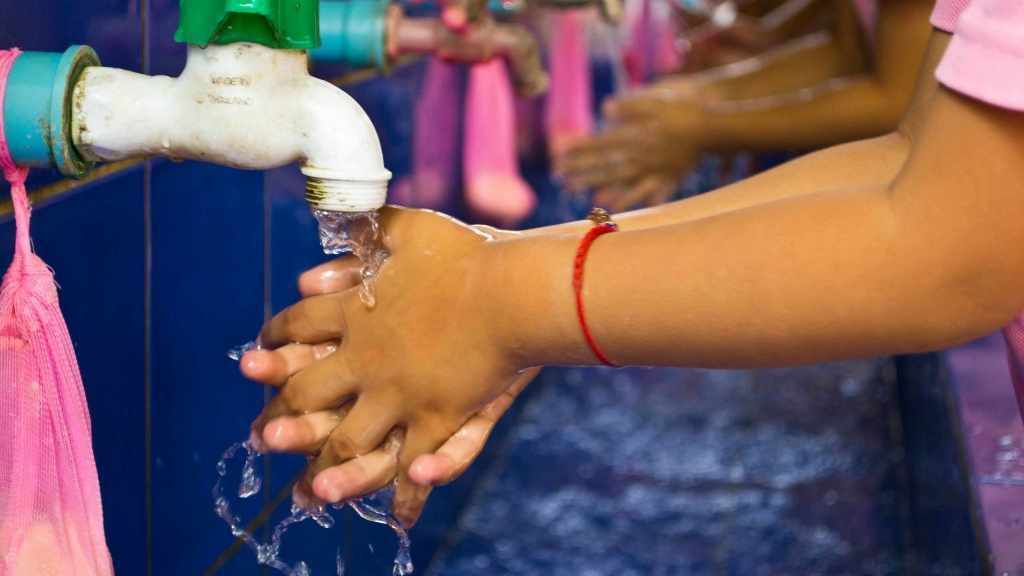-
Health & Wellness
5 Ws of Handwashing to Help Kids Avoid Germs and Illness
National Handwashing Awareness Week
Basic rules to prevent illness during the cold and flu season are as simple as knowing how to wash your hands properly, when to wash your hands, what products to use and why you should pay special attention to skin cleanliness.
"Teaching kids healthy hygiene habits is essential, because young children are more likely to bring respiratory illnesses home from school or daycare, which can infect your entire family," says Peggy Decker, M.D., a Mayo Clinic Health System pediatrician.
Dr. Decker encourages people to keep the 5 Ws in mind when teaching your children about proper hand hygiene.
Who? Everyone!
What? Running water and plain soap, followed by moisturizer, is best where running water is available.
Where/How?
- Where running water and soap is available, wet hands thoroughly.
- Apply soap and lather, paying special attention to nails and between fingers.
- Rub for 10 to 20 seconds — long enough to sing the “Happy Birthday” song twice.
- Dry with a clean towel.
- Use the towel to turn off the faucet.
When?
- Visibly dirty hands
- Before eating and before/after food prep
- After toileting
- After shaking hands with someone
- On arrival home from school, daycare and playdates
- After touching something dirty
- After coughing, sneezing or wiping nose
Why?
Skin is usually a great barrier to infection. You can help maintain that barrier by regularly using moisturizers during cold, dry winter months to prevent cracked or chapped skin. You can also remove infectious organisms from your hands before you transfer them to your eyes, nose or mouth. This is often how common cold and influenza viruses are spread. Research indicates that hand washing regularly in classrooms decreases school absences due to illness.
In some situations, hand sanitizer is a good alternative. You use a dime-sized amount and rub it thoroughly over the hand surfaces until hands are dry. Hand sanitizers usually contain 60 to 90 percent alcohol, which kills many bacteria and viruses that cause infection. Hand sanitizer doesn’t work if it doesn’t have good contact with the skin, so opt for soap and water when hands are extremely soiled.
"As a parent, you can’t prevent your kids from contact with dirt and germs," says Dr. Decker. "But you can teach them the right way to wash their hands and protect themselves by making frequent hand washing a life-long healthy habit."
More information about washing your hands.
Related Articles








